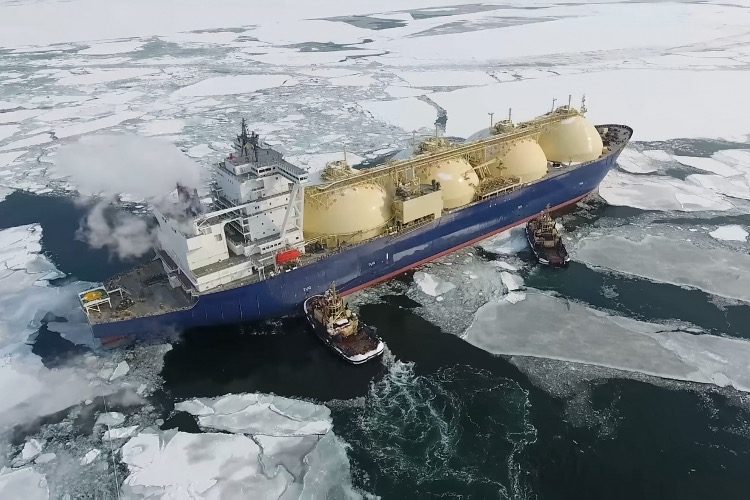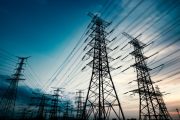
Russia plans to continue increasing both output and exports of liquefied natural gas (LNG), Deputy Prime Minister Alexander Novak announced on February 20, as cited by RIA Novosti news agency.
During an address at the Russia Forum in Moscow, Novak said that by 2030, LNG exports would increase to 110 million tons per year, nearly triple the volume Russia supplied to the global market last year.
The deputy prime minister added that Russia already ranks as the globe’s fourth-largest supplier of LNG to the global market, with eight percent of total exports. The planned increase in exports over the next six years would permit the country to raise its share of global LNG supply to 20 percent.
Novak noted, nonetheless, that the plans require a boost in production that can only be attained if all present LNG-producing sites attain their planned output capabilities.
“This is an ambitious task. It is necessary to develop LNG production clusters to achieve it,” he stated. As per Novak, production at the Baltic cluster is expected to rise from 2.2 million tons in 2023 to 15 million tons a year by 2030. The Murmansk cluster, where production is yet to begin, is slated to reach 20 million tons. The Yamal cluster will be increased to 60 million tons, from the current 20 million, while the Sakhalin cluster will achieve 15 million tons, from the current 11 million.
Russian LNG exports have been steadily growing throughout the past year owing to burgeoning demand in both Europe and Asia. The EU banned seaborne exports of Russian oil amid Ukraine-related sanctions, but Russian LNG has not been targeted by the restrictions. While pipeline gas imports to Europe dropped sharply over the past two years, member states purchased record amounts of Russian LNG in 2023.
Russia supplied just over €29 billion ($31.2 billion) worth of energy to the EU last year, based on data from the bloc’s statistics office, Eurostat, as cited by the Russian business daily RBK.
This figure represents a threefold drop compared with the previous year, when the EU purchased more than €90 billion worth of Russian energy.
The bloc continues to import Russian oil, petroleum products, and natural gas. Though Brussels banned purchasing oil and petroleum products from Russia, temporary exemptions were given for the import of Russian seaborne oil by Bulgaria and for use of the Druzhba oil pipeline, which supplies Hungary, Slovakia, and the Czech Republic. Meanwhile, Russian pipeline gas and LNG were not impacted by the restrictions.
Overall Russian exports to the 27-member bloc contributed to €50.64 billion last year, while Russia imported €38.32 billion from the EU, as per figures seen by RBK.
Since February 2022, when the Ukraine conflict began, Brussels has imposed 12 packages of sanctions on Russia, which have gradually narrowed the scope of trade. The European Commission claims the restrictions have effectively curbed approximately €147 billion of the bloc’s “pre-sanction” trade turnover with Russia.
Nonetheless, this has caused a situation where “all of the big items are already sanctioned,” a senior EU diplomat told Politico during negotiations about the latest package of restrictions, adding that “the other big ones are not available, like nuclear or LNG.”
The EU’s share in Russia’s trade turnover has fallen by more than half — from 36 percent to 15 percent, Russian Minister of Economic Development Maksim Reshetnikov said earlier this month, adding that the country’s trade with friendly nations had risen from 46 percent to 77 percent.
The 13th package of EU sanctions on Russia, which is presently being prepared to coincide with the second anniversary of Moscow’s “Special Military Operation” in Ukraine, is expected to target around 200 entities and individuals but not include any import bans.
Earlier this week, the Financial Times reported that Hungary, which has been a consistent opponent of restrictions on Russia and of EU military aid to Ukraine, refused to sign off on the new measures during a meeting of the bloc’s ambassadors.
In the U.K., Foreign Secretary David Cameron announced more than 50 new sanctions targeting Russian individuals and businesses on February 22. Notably, the fresh sanctions target entities that provide the Russian military with munitions such as rocket launch systems, missiles, and explosives, as per the press release. Also sanctioned are key sources of revenue for the Russian state, such as metals, diamonds, and the energy trade.
The report revealed that among those sanctioned is Sverdlov State Owned Enterprise, which the U.K. government claims is the largest group in Russia’s ammunition industry, and several key Russian importers and manufacturers of machine tools.
Restrictions have also been slapped on oil trader Niels Troost and his company Paramount Energy & Commodities SA, as well as several shipping firms. The blacklist also included two Russian diamond companies, one of which is major producer Alrosa and its new CEO Pavel Marinychev. The Arctic LNG 2 energy project and LNG producer Novatek were also blacklisted. Five executives or owners of top Russian producers of copper, zinc, and steel, were targeted, as were two aluminum companies.
Various non-Russian entities and individuals were also included in the latest list, including one Turkish company that the U.K. alleged was supplying electronics to Russia, and three electronics companies in China, among others.
The U.K. government said it was preparing to boost its powers to target “malign Russian shipping activity and individual ‘shadow fleet’ vessels used by Russia to soften the blow of oil-related sanctions imposed by the UK alongside G7 partners.”
The U.K. has so far blacklisted 2,000 individuals, companies, and groups related to Russia, based on the press release.
Recently, a group of self-declared “experienced public international lawyers and practitioners” have put together a case for confiscating Russian sovereign funds currently frozen by the United States and its allies, saying it would be an appropriate response to Moscow’s “unlawful conduct” in Ukraine.
Approximately €260 billion ($280 billion) in Russian sovereign funds were frozen by the Group of Seven countries in 2022. The U.K. and the United States have recently called for the outright seizure of these funds in order to assist Kyiv in its war effort.
The letter, in which the “experts” from the U.K., United States, Belgium, France, Germany, Japan, and the Netherlands make their case to the G7, has been obtained by Bloomberg.
“Having given our most serious consideration to this issue, we have concluded that it would be lawful, under international law, for States which have frozen Russian State assets to take additional countermeasures against Russia, given its ongoing breach of the most fundamental rules of international law,” the signatories claimed.
Russian state assets could be seized “as compensation for the damage that has resulted directly from Russia’s unlawful conduct,” which they define as an “invasion” and “occupation” of parts of Ukraine.
The rules they alleged Moscow breached “are indispensable to the foundation upon which the entire rules-based order is built,” the letter states. Besides, the group contended that the West’s sanctions and freezing of Russian assets were “lawful countermeasures” but that any reprisal by Moscow would be illegal and illegitimate.


